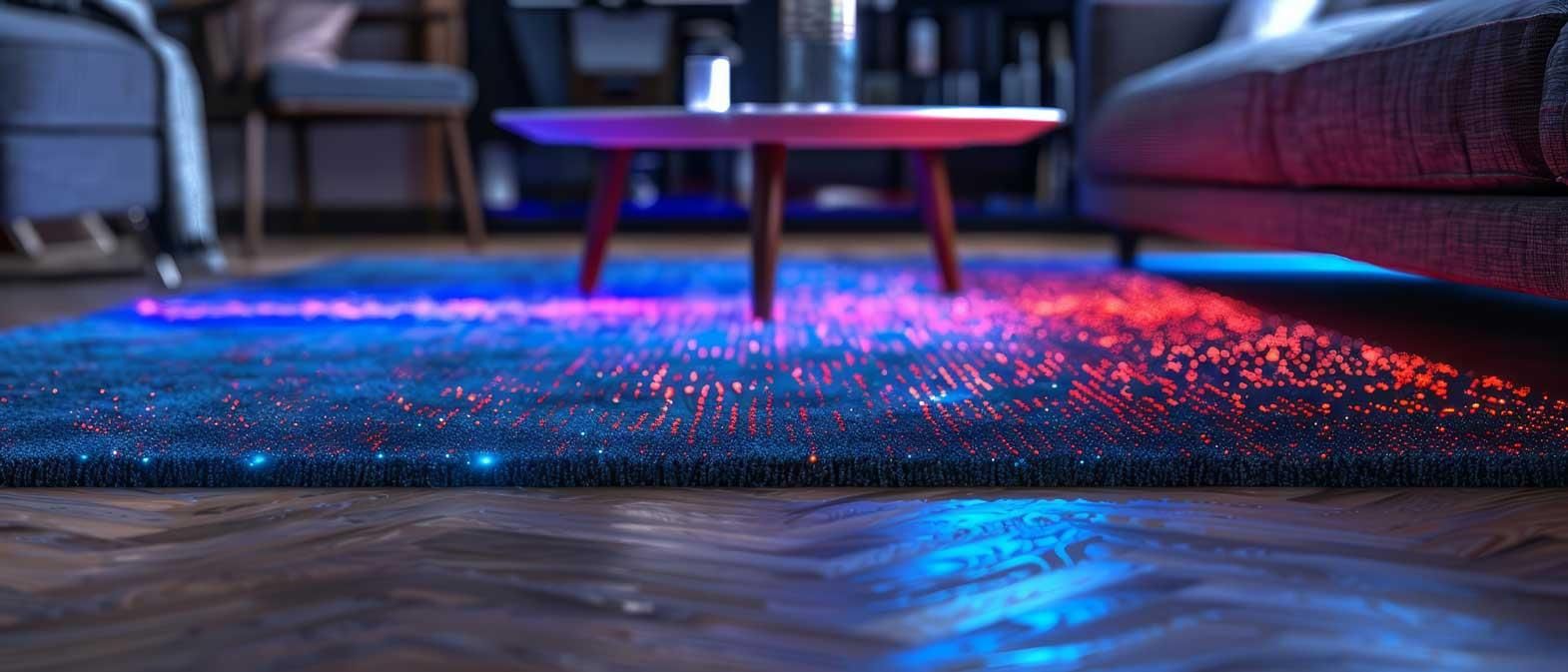Traditionally, carpets and rugs were used to cover floors or enhance the interior decor of a room. However, modern smart carpets are revolutionizing this industry. These innovative carpets can monitor a person's activity and transmit signals to computers.
Carpets are particularly susceptible to stains and dirt, whether in commercial spaces or residences. A premium carpet company in South Africa has devised a carpet that not only resists stains but is also antimicrobial and hypoallergenic. They achieve this by using special fibers treated with polypropylene. The manufacturing process involves injecting pigments into nylon polymers while they are in the molten stage, ensuring resistance to color fading from excess light and staining.
Since we spend a significant portion of our time indoors, the quality of the air we breathe is of paramount importance. Smart carpets have the capability to capture and retain harmful dust particles, reducing the concentration of fine particles by up to eight times compared to hard floors and regular carpets. This technology has contributed to the management of conditions like asthma. These carpets are designed to release dust during vacuuming.
Smart fabrics are also being employed to create carpets with the ability to detect motion, temperature, pressure, and vibrations. A Munich-based research team has developed a carpet embedded with computer chips for monitoring buildings and providing directions in case of emergencies.
LED-equipped carpets can offer guidance within buildings and find applications in the construction industry. They can be wrapped around walls or spread on floors of newly constructed surfaces to detect faults in concrete structures and prevent damage at an early stage.
The utilization of these intelligent carpets is growing in the healthcare industry to monitor a patient's activity. They are used in places and homes where Alzheimer's patients live, to predict and detect when sudden falls have occurred. It would be very helpful to families with an Alzheimer's patient, so the sensors can send signals to members or a care taker, when an individual has fallen.
This technology is being developed as an elder-care product, which can be used in homes and care centers for old adults. Such carpeting can be used by nursing staffs in care centers to monitor movements and get alerts in case of falls or health changes.
Carpets are used extensively in homes, and applying the sensor and motion detecting technology can serve security and safety purposes. Once the carpet has detected patterns of the members of a house, any new foot pattern automatically signals the stepping in of an intruder, and the old rug lying on the floor turns into an alarm.
Shopping for carpets now, is not just picking a color and size. Since carpets are being used to keep the space in a room clean and healthy. One more technology being implemented in carpeting is cleaning the air of a room. The back and the fibre of the carpets are diffused with an organic salt solution, which at regular intervals reacts to the pressure from walking on it. The organic compounds, which are released when one walks on the carpet, neutralize the odor, without pulling the smell in the fabric of the carpet. This means the smoke of a cigarette lit up in a room and that of fresh flowers, will both be neutralized. These carpets do not hold on to any kind of aromas. Since it works on the neutralizing process, the odors are broken down and destroyed, leaving the room smelling clean and fresh.
There are many high-tech flooring options one can choose from be it for residential or commercial purposes. Carpets are becoming easier to clean and at the same time have become efficient enough to keep the surroundings clean. With floor coverings turning multi-functional and breakthrough technologies, smart carpets can be bought to suit one's need or purpose.
References:
1. Ameinfo.com
2. Pcworld.com
3. Ei.wtin.com
4. Belgotexcarpets.com
5. Technologyreview.com
6. Voices.yahoo.com








Comments